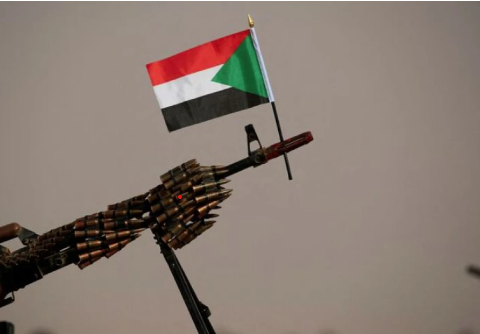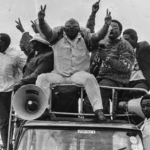Rival Sudanese political factions convened for reconciliation talks in Cairo on Saturday, marking the first such dialogue since the country’s conflict began nearly 15 months ago. However, they acknowledged limited prospects for swiftly resolving the war.
During the conference, the Democratic Bloc, aligned with the army, declined to participate in joint sessions with the Taqaddum faction, accusing them of sympathizing with the Rapid Support Forces (RSF). Neither the army nor the RSF representatives were present.
The conflict in Sudan, which erupted in April 2023, has displaced nearly 10 million people, triggered famine warnings, and led to waves of ethnically motivated violence, largely attributed to the RSF. Recently, the RSF operations in Sennar state resulted in further displacement. In response, Army Chief General Abdel Fattah al-Burhan stated that the army would not engage in negotiations with the RSF or its supporters.
“The stark deterioration in the humanitarian situation and the catastrophic consequences of this crisis, call on all of us to work to immediately and sustainably to stop military operations,” said newly-appointed Egyptian foreign minister Badr Abdelatty.
Talks in Jeddah between the army and RSF, sponsored by the United States and Saudi Arabia, collapsed at the end of last year.
Taqaddum, comprising pro-democracy parties, armed groups, and civil society, advocates for ending the war. The army-aligned Democratic Bloc includes leaders of several armed groups involved in the conflict.
Egypt leveraged its influence to convene the groups, but at the conference’s outset, the main attendees sat on opposite sides of the hall.
The two political factions agreed only to establish a small subcommittee tasked with drafting a final communique calling for an end to the war. However, three Democratic Bloc leaders, whose forces are aligned with the army, did not sign the communique.
“We told them [the Egyptians] not to have high ambitions for this meeting,” Finance Minister Jibril Ibrahim told Reuters. He along with Darfur governor Minni Minawi and Sovereign Council deputy Malik Agar did not sign the communique.
“Given the situation on the ground, if we sit and eat and drink and laugh with the people who are allied and partners in the crimes that are happening we would be sending the wrong message to our citizens and to our soldiers,” he said.
He further emphasized that achieving peace would not be feasible unless the RSF withdrew from civilian areas, as stipulated in the agreement signed in Jeddah last year, and unless the United Arab Emirates ceased its material support to the RSF. United Nations experts have found the allegations of such support credible, although the UAE has denied them.
Former Prime Minister and Taqaddum leader Abdalla Hamdok dismissed accusations linking the coalition to the RSF, stating that he was awaiting the army’s agreement to engage in talks.



